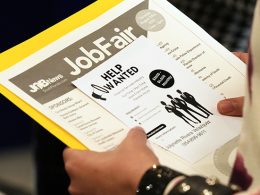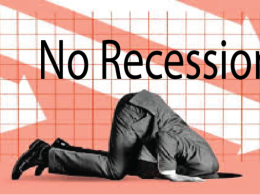by Kevin McCreadie, MBA, CFA®, CEO, and Chief Investment Officer, AGF Investments Inc.
September 1, 2022
AGF’s CEO and Chief Investment Officer discusses the U.S. Federal Reserve’s hawkish resolve to combat inflation and whether equity markets are pricing in the potential economic fallout from its continued aggressiveness.
The summer rally in stocks has stalled in recent weeks. Can it pick up steam again this fall?
It has been a welcome rally after a difficult first half to the year, but the past few weeks is a reminder that equity investors may not be out of the woods just yet. The big question facing all of us is whether the run up in stocks over the past two months marks the beginning of a new bull market or a temporary reprieve in a bear market that still has legs.
Of course, no one really knows the answer to that, but there’s little doubt that the trajectory of stocks and bonds will remain more dependent on the actions of the U.S. Federal Reserve (Fed) and other central banks going forward than on any other catalyst or risk currently out there.
To that end, many investors believe U.S. equity markets have bottomed because they also believe inflation has peaked, which, in turn, means the Fed won’t need to raise rates much higher than it has to date. In fact, until a few days ago, some expected that the magnitude of further rate hikes – in the United States at least – would gradually grow smaller over the next few months, starting with 50-basis point increases in September and November followed by a 25-basis point raise in December. Moreover, there was an expectation that the Fed would begin cutting rates sometime in 2023, all of which suggested we may be at the beginning of the end when it comes to the current tightening cycle.
Laid out like that, it’s no wonder that stocks rallied as much as they did since mid-June and should Fed policy actually play out that way – or close enough to it — future upside in equity markets almost seems like a sure thing, especially if a recession can also be avoided in the process.
But that is not how it likely unfolds from here. To the contrary, it’s looking more like another 75 basis-point rate hike may be in the cards next month after Jerome Powell, the Fed’s Chairman, made it clear in a speech at Jackson Hole last weekend that rates are going to go higher for as long as it takes to get inflation under control. Remember, the inflation rate in the U.S. may have peaked in June, but it is still above 7% and nowhere near the Fed’s target of 2% or slightly higher. In making his case, Mr. Powell also acknowledged that higher rates may result in lower economic growth and rising unemployment. In other words, the possibility of a recession can’t be ignored, nor should it be assumed that equity markets will rally further because the selloff that preceded it had already fully priced in a recession. That’s not to say stocks aren’t reliable leading indicators – they usually are — but investors shouldn’t rule out a re-test of recent lows if the Fed sticks to the game plan that it continues to communicate.
What should investors be watching out for over the next month?
September is traditionally a slow news month for markets, but obviously investors need to pay close attention to the Fed’s next rate announcement on the 21st. But what the Fed ends up doing (and saying in its communique) will depend on the U.S. inflation data for August, which is released one week earlier on the 13th and 14th of the month. Needless to say, there could be greater-than-normal volatility between those dates as market participants re-calibrate their Fed expectations based on the latest consumer and producer price levels.
Beyond that, growth and employment figures need to be analysed perhaps more than usual over the next few months. This includes purchasing manager indices, which may now be weakening, as well as weekly jobless claims. While the official unemployment rate remains at historical lows in the U.S., several high-profile companies have recently announced significant layoffs in what could be the start of a worrying trend that only increases the likelihood of a recession. After all, while the absolute level of unemployment today seems healthier today than its ever been, all it could take is a slight increase in the rate of it to spur on more economic weakness.
Either way, it could be another grind for equity investors this fall. Even if the worst of the bear market is over, it’s probably too early to pronounce the start of a new bull run just yet and returns, if any, from now until the end of the year could be modest unless inflation data gets the Fed to re-think its current course of action.
Kevin McCreadie is Chief Executive Officer and Chief Investment Officer at AGF Management Limited. He is a regular contributor to AGF Perspectives.
Click to learn more about our fundamental, alternative and quantitative capabilities.
The views expressed in this blog are those of the authors and do not necessarily represent the opinions of AGF, its subsidiaries or any of its affiliated companies, funds, or investment strategies.
The commentaries contained herein are provided as a general source of information based on information available as of August 31, 2022, and are not intended to be comprehensive investment advice applicable to the circumstances of the individual. Every effort has been made to ensure accuracy in these commentaries at the time of publication, however, accuracy cannot be guaranteed. Market conditions may change and AGF Investments accepts no responsibility for individual investment decisions arising from the use or reliance on the information contained here.
AGF Investments is a group of wholly owned subsidiaries of AGF Management Limited, a Canadian reporting issuer. The subsidiaries included in AGF Investments are AGF Investments Inc. (AGFI), AGF Investments America Inc. (AGFA), AGF Investments LLC (AGFUS) and AGF International Advisors Company Limited (AGFIA). AGFA and AGFUS are registered advisors in the U.S. AGFI is registered as a portfolio manager across Canadian securities commissions. AGFIA is regulated by the Central Bank of Ireland and registered with the Australian Securities & Investments Commission. The subsidiaries that form AGF Investments manage a variety of mandates comprised of equity, fixed income and balanced assets.
® The “AGF” logo is a registered trademark of AGF Management Limited and used under licence.












